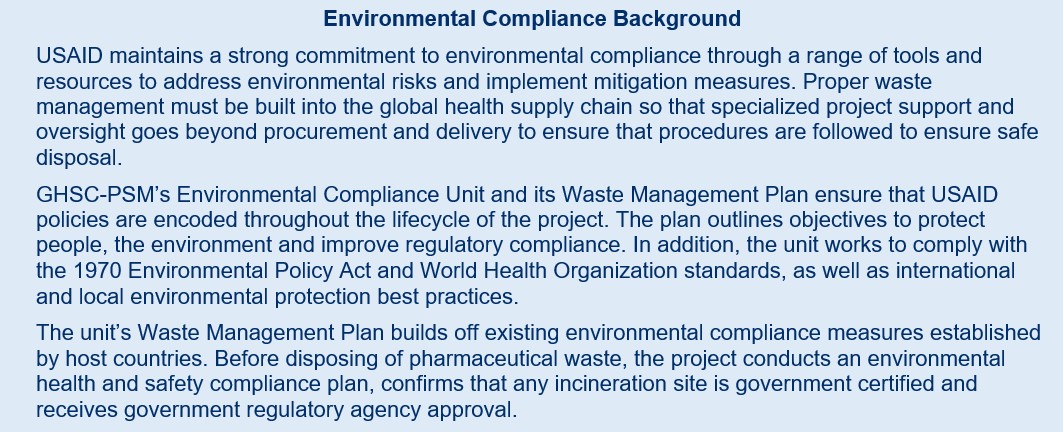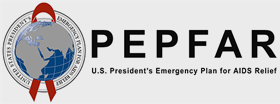Enweruzo-Amaefule’s story illustrates just one of the many innovative means that GHSC-PSM staff utilize to achieve USAID’s goals and those of the project’s Environmental Compliance Unit and its Waste Management Plan to protect people and the environment. GHSC-PSM has been working with country governments around the globe to efficiently and safely dispose of unused pharmaceutical products that it procures and delivers for the past five years.
Pharmaceuticals can be unused because of overstock and expiry, some form of damage or improper storage, or replacement of medication regimen. When these products are improperly disposed of, people can scavenge them from landfills or small waste sites adjacent to health facilities and sell them on the black market, potentially threatening the health of consumers.
These items also carry USAID branding, which could prompt consumers to reject drugs procured by the Agency and distributed by GHSC-PSM if they thought they were unsafe or ineffective. This could further threaten the health of those who need treatment for HIV, malaria, or other illnesses or want contraceptives. If disposed of improperly, these products could also harm the environment and consequently communities.
“It’s very important that any waste coming out of health care facilities or warehouses is appropriately dealt with to prevent any harm,” said Janine Berger, Environmental Compliance Unit senior specialist. “We send it directly to an authorized incinerator or even aligned landfill instead of just sending it to any location and dumping. We want to make sure that it’s going to government-authorized locations. That is one of our requirements under the project.”







